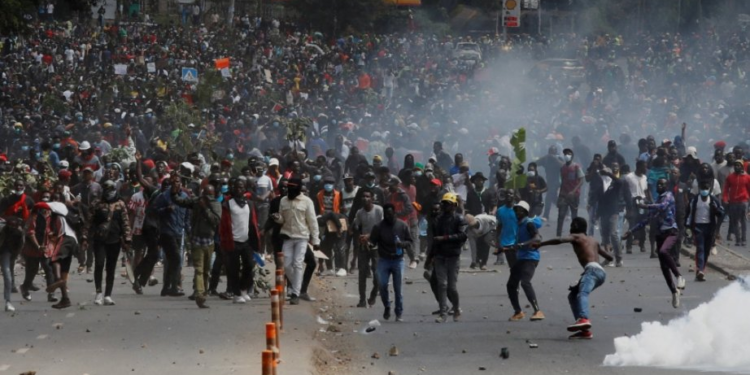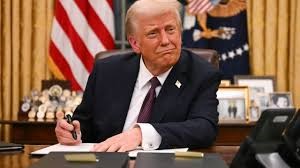Kenyan police have banned protests in the central areas of Nairobi and its surroundings “until further notice,” citing difficulties in maintaining safety due to the leaderless nature of the demonstrations. This decision follows a month of anti-government protests that have resulted in numerous casualties.
The protests, which initially began as a youth-led movement against proposed tax increases, have been ongoing despite President William Ruto’s withdrawal of the legislation and the dismissal of most of his cabinet. According to the police, organized criminal gangs have infiltrated the protests, complicating efforts to maintain order.
Since the demonstrations started on June 18, at least 50 protesters have been killed and 413 injured, according to the Kenya National Commission on Human Rights. Allegations have surfaced that police have used excessive force, including firing on protesters and arresting activists.
The ban specifically targets the Nairobi Central Business District and surrounding areas, with a significant police presence deployed to enforce the measure. Activists have criticized the ban, arguing that it violates constitutional rights to peaceful assembly and protest.
The police ban has sparked outrage online, with many claiming it is an attempt to suppress legitimate dissent and undermine democratic freedoms. Social media platforms have been flooded with criticism, and tensions remain high as clashes between protesters and police continue in various parts of the city.
As the situation remains volatile, the international community has called for calm and dialogue. The United Nations, Amnesty International, and various human rights organizations have urged the Kenyan government to respect the rights of its citizens and to engage in meaningful discussions to address the root causes of the unrest.
With protests planned to continue, the coming days are critical for Kenya’s stability. The government’s response and willingness to engage with the protesters will likely determine the trajectory of the current crisis.

































